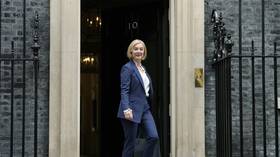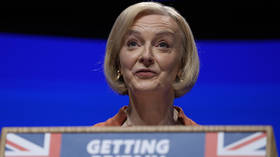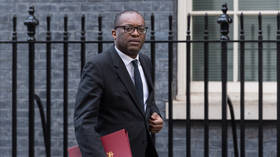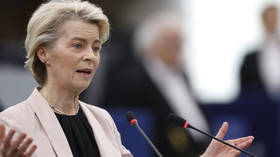British MPs demand Liz Truss resign

A trio of Conservative MPs have called for Liz Truss to step down as prime minister as of Sunday night. Crispin Blunt was the first to go public, declaring he did not think Truss could weather the current economic crisis. He was followed by Andrew Bridgen, who said “our country, its people and our party deserve better.”
The third, Jamie Wallis of Bridgend and Porthcrawl, lamented that Truss had “undermined Britain’s economic credibility and fractured our party irreparably.” Wallis, who came out as transgender earlier this year, excoriated his party for “weaponizing” the trans issue “in order to score cheap political points” and suggested he would leave the party entirely if Truss were not removed.
Getting rid of Truss now would give Conservatives a fighting chance in the next general election, Wallis reasoned, explaining that “two years is a very long time in politics.”
In just over a month in office, Truss presided over a massive shift in public sentiment against her party, which could lose 219 seats in Parliament, according to an MRP poll conducted before she walked back her unpopular budget initiatives.
As many as 100 no-confidence letters have reportedly been submitted by senior Tory MPs who have not gone public, according to the Guardian – a torrent reminiscent of the mass abandonment that led to Truss’ predecessor Boris Johnson’s own departure from 10 Downing Street. While rules exist to keep Truss in office for a year, 1922 Committee chair Geoffrey Clifton-Brown told the BBC those could be changed if a “large majority” of party members so desire.
Truss was forced into a total reversal on her fiscal agenda, rolling back unfunded tax cuts and axing so-called “free market” reforms that threatened to impose punishing austerity in the form of massive cuts to public services.
Truss fired her chancellor Kwasi Kwarteng and replaced him with Jeremy Hunt, widely seen as the most powerful person in government – though he defended her credibility and said “the prime minister is in charge.”














